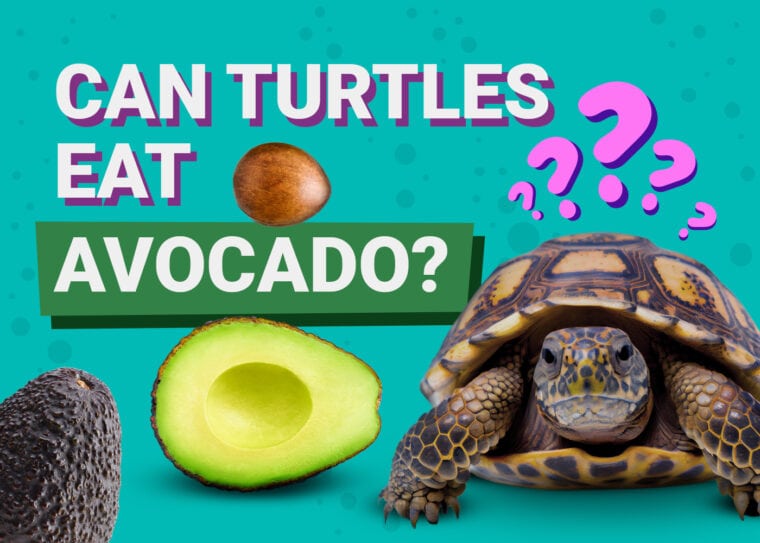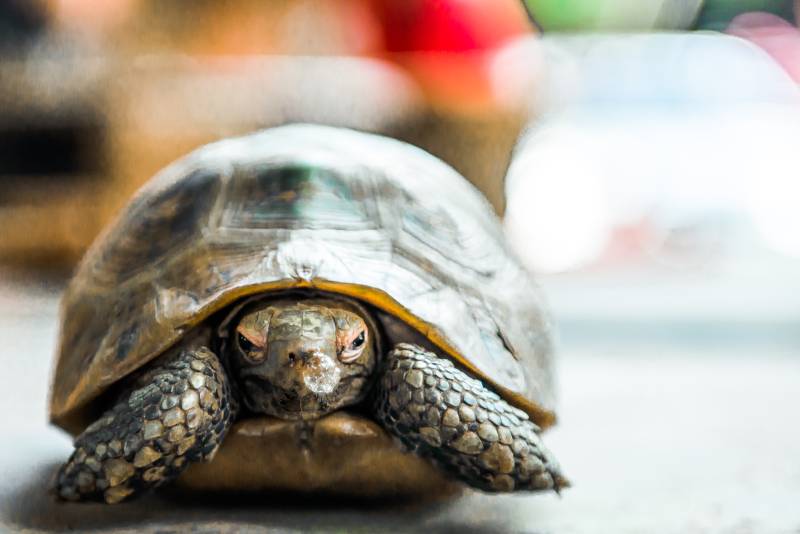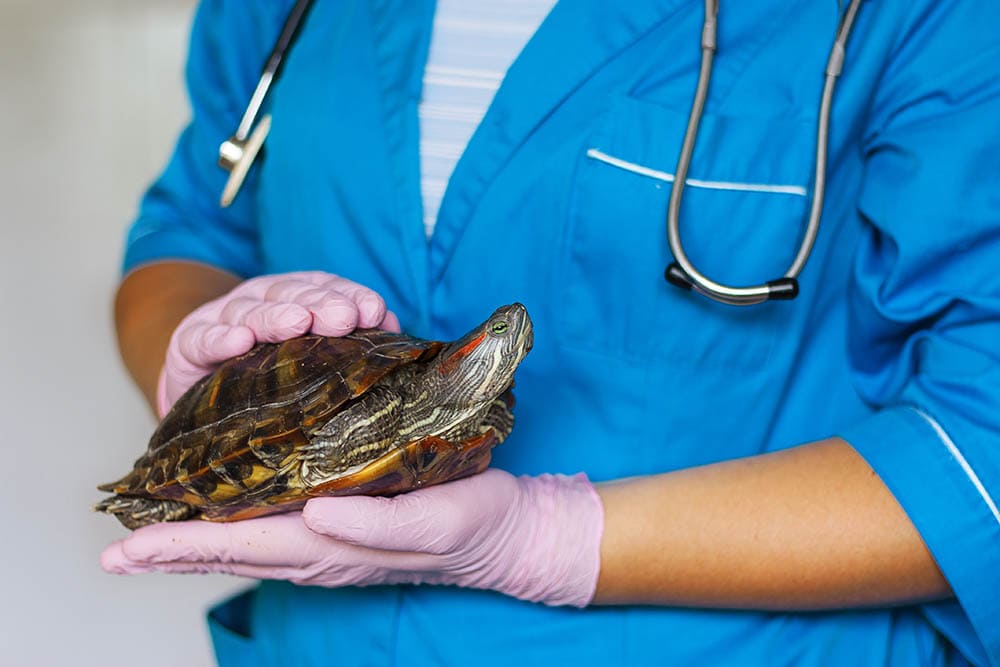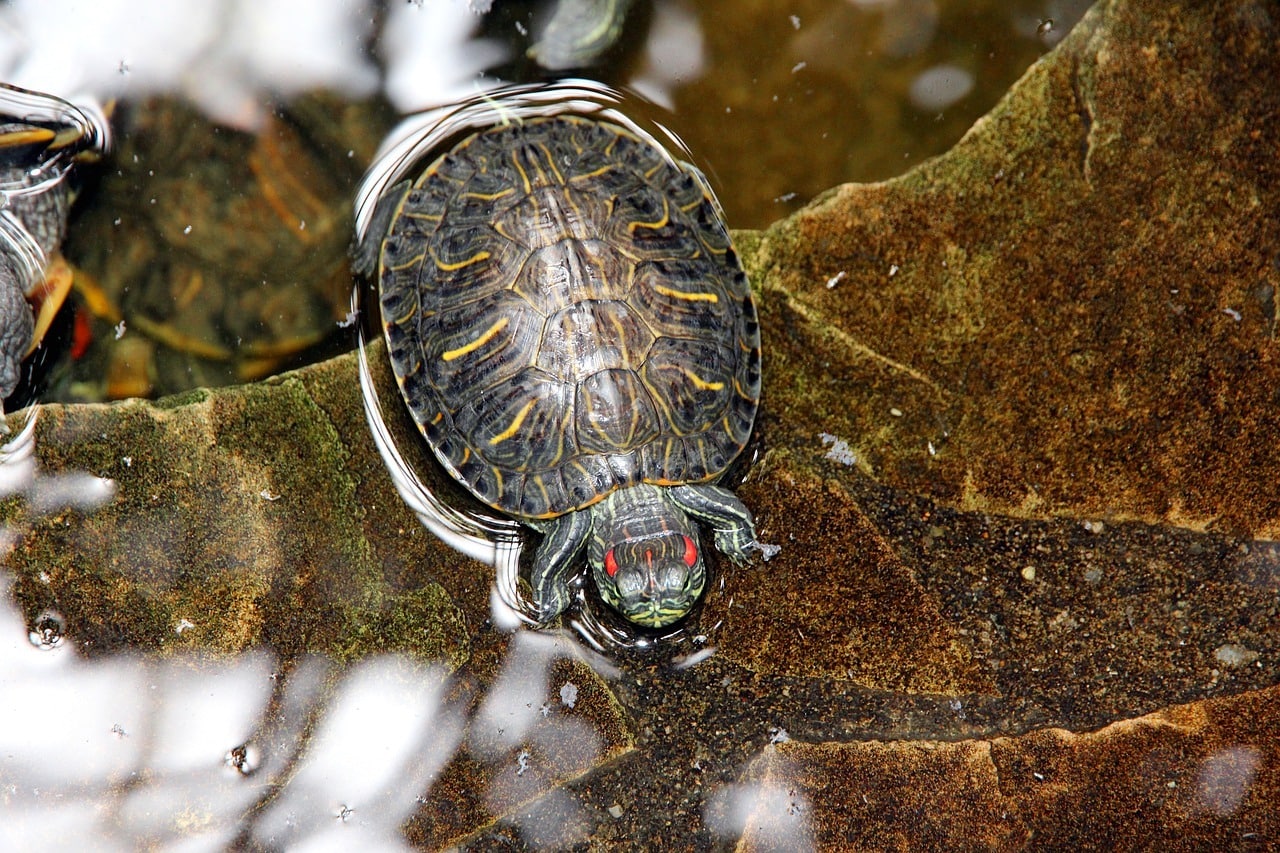
Click to Skip Ahead
Feeding your pet turtle is one of the highlights of owning one, as you get to watch them enjoy the varied foods you give them. It’s relatively easy since many turtles are omnivores and eat weeds, worms, aquatic plants, insects, and more. That leads many turtle owners to ask if their pets eat avocados. The answer, unfortunately, is no: you should never give your turtle avocado. We have valuable and insightful info about why avocados should not be on your pet’s menu and what to do if they eat them.
Why Can’t Turtles Eat Avocado?
While avocado is healthy and beneficial for humans, with “good” fats and many vitamins, one chemical in the plant is toxic to many animals, potentially including turtles. That chemical is persin, which is a natural toxin that protects the avocado plant against fungi.
Persin can affect different animals in different ways. Many will react to persin by vomiting or having diarrhea, others such as goats can develop mastitis. Some animals, like birds and rabbits, have even been known to have fatal reactions to persin. That’s why avocado is on the list of plants that reptiles and amphibians can’t eat.
We could not find specific case reports or studies showing that avocado is toxic to turtles. However veterinary texts recommend that until more is known, avocado should not be fed to turtles to keep them safe.

Which Parts of the Avocado Are Potentially Toxic for Turtles?
Unfortunately, all parts of the avocado plant are considered toxic, including the stem, leaves, flower, pit (aka stone), and the avocado fruit. In short, no part of the avocado plant is safe to feed to your turtle, and turtles should not have access to the plant if you grow them.
What Effect Does Persin Have on Turtles and Their Health?
Some of the worst effects that this chemical toxin could have on your pet turtle include the following:
Does Avocado Cause Other Health Issues for Your Pet Turtle?
Because it’s a toxin, persin is considered the biggest risk to turtles. However, several other issues can arise if you feed your turtle avocado, making it even more important that they don’t eat the fruit or plant. They include:

An Improper Ratio of Phosphorus to Calcium
To absorb calcium well, a turtle needs phosphorus in a rather specific ratio. That ratio is 2-part calcium to 1-part phosphorous (2:1) and needs to be as close as possible. Unfortunately, avocado has a calcium-to-phosphorus ratio of 1:4, which is far from ideal for your turtle.
The problem with an incorrect calcium-to-phosphorus ratio is that, with too much phosphorus, calcium absorption is reduced. This can cause a situation where your turtle gets plenty of calcium but can’t absorb it well enough. Instead, the calcium gets excreted out of its body, causing a calcium deficiency. The body produces a hormone to try and balance the calcium levels by removing it from bone. Eventually weakened bones are the result.
Avocados Are High in Oxalates
Many fruits and vegetables contain a natural compound called oxalic acid, often called oxalates. Oxalates aren’t problematic, per se, unless they’re found in too high a concentration. As you might have already guessed, avocados have a very high level of oxalates, nearly 20 milligrams per fruit.
The problem with oxalates is that they bind with minerals, including calcium, which prevents the absorption of calcium. In other words, oxalates bind with calcium and are then excreted from your turtle’s body rather than used. This, as with an unhealthy calcium-to-phosphorus ratio, can cause your turtle to suffer from a calcium deficiency and, in severe cases, metabolic bone disease.
Too Much Avocado Can Cause Obesity in Turtles
It might surprise you to know that turtles can become obese. Eating foods high in fat can be the cause, and avocados are high in fat. Indeed, they contain a whopping 21 grams of fat for the average-size avocado, which, even though it’s “good” fat, is still too much to be fed to a turtle consistently.
What Are the Signs of MBD in Turtles?
Metabolic bone disease (MBD) is a relatively broad term for a group of diseases that affect the bones of a turtle’s skeleton. MBD is usually caused by a mineral imbalance in a turtle’s body, especially with calcium, magnesium, vitamin D, and phosphorus. If your turtle has MDB, the following signs will usually be seen, including:

What to Do if Your Turtle Eats Avocado
If your turtle accidentally eats avocado, or you’ve fed them some, not knowing the dangers, don’t panic. Instead, keep a close eye on your turtle and give your exotics veterinarian a call for advice. You’re looking for signs that your turtle is experiencing restlessness, vomiting, diarrhea, or breathing problems.
If you don’t see any of these signs, your turtle likely only ate a small amount of avocado and will be fine. On the other hand, if you notice that they’re acting odd or seem sick, you must take your pet to see your vet as soon as you can.
What Can You Feed Your Turtle Instead of Avocado?

Below are several other fruits and vegetables that are a good substitution for avocado. Remember that any fruits and vegetables you share with your turtle that aren’t part of their regular daily diet should be given in moderation.
Final Thoughts
Unfortunately, due to the high fat, oxalates, and persin, turtles should never be given avocado, even as a snack. The risk of adverse effects on their health is simply too high.
The good news is that you can feed your pet turtle plenty of other fruits and vegetables and provide them the vitamins, minerals, and nutrients they need to live a long, healthy life.
Featured Image Credit: Piqsels








